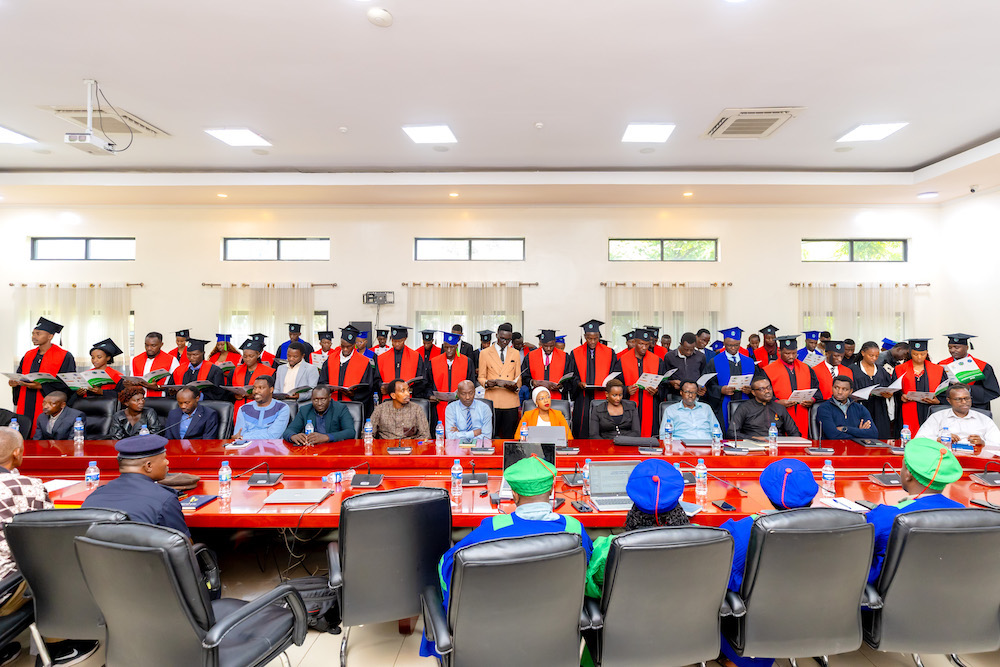The Ministry of Agriculture and Animal Resources, in partnership with the Rwanda Veterinary Council, has called on newly registered veterinary professionals to accelerate service delivery through the government-led initiative known as the “Veterinary Sanitary Mandate,” which aims to improve collaboration between livestock farmers and private veterinary practitioners.
This call was made during a ceremony held to welcome 57 graduates from the University of Rwanda who have completed their studies in veterinary medicine and were officially sworn in as members of the Rwanda Veterinary Council.
Dr. Telesphore Ndabamenye, the State Minister in the Ministry of Agriculture and Animal Resources, told IGIHE that engaging the private sector will help ensure that veterinary services reach farmers more efficiently. He urged the new veterinarians to prioritize the needs of livestock owners.
“We established the Veterinary Sanitary Mandate to involve private sector professionals in animal treatment so that services are delivered faster. However, we also urge veterinarians to uphold professionalism and put farmers first,” he said.
The government has spent the past year restructuring agricultural and livestock extension services to encourage youth and private institutions to join these fields, increasing the number of qualified experts who can support farmers and address their challenges.
Dr. Charles Kayumba, President of the Rwanda Veterinary Council, stated that the swearing-in ceremony reinforces professionalism and accountability within the veterinary field.
“This ceremony is very important because by taking an oath, they commit to entering the profession with integrity, knowing they will be held responsible for their performance. They must understand their duties and the oversight in place to ensure they fulfill their obligations,” he explained.
Dr. Kayumba highlighted that veterinary medicine plays a central role in the “One Health Campaign,” which integrates animal health, human health, and environmental protection. He emphasized the need for veterinarians to work responsibly without compromising other parts of this ecosystem.
Ernestine Niyomukiza, a graduate from the Nyagatare campus, expressed that the day marked a moment of trust from the nation. She said they are ready to contribute to animal healthcare and support the country’s economy, noting that veterinarians must also engage in community education.
Emmanuel Tuyishime researched black rhinos in Akagera National Park, focusing on parasites that threaten this endangered species. His findings revealed that some parasites can be transmitted to humans. Fortunately, some existing veterinary treatments have shown the ability to combat these parasites.
The Rwanda Veterinary Council currently has more than 6,000 registered veterinary practitioners. Among them, 11% hold a bachelor’s degree, 84% completed secondary school veterinary studies or a diploma in veterinary medicine, and 5% hold a degree in animal husbandry.
So far, 93 private companies nationwide have joined the Veterinary Sanitary Mandate program.




